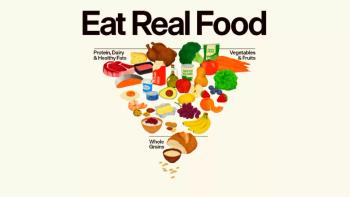
Children who use WIC longer eat better
Children who are eligible in Special Supplemental Nutrition Program for Women, Infants, and Children (WIC) and stay enrolled at least until age 2 years fare better than children who leave the program early, despite still being eligible.
Children who stay in the Special Supplemental Nutrition Program for Women, Infants, and Children (WIC) program beyond infancy score higher marks in nutrition assessments than those who are pulled from the program before age 2 years, according to new research.
The
Researchers investigated the nutritional status of children who were enrolled in WIC for a 2-year period using a series of interviews for the first 2 years of life. The data, which were collected between 2013 and 2016, excluded participants who stopped using the WIC program because they became ineligible, the report notes.
Nancy S. Weinfield, PhD, a research scientist with Kaiser Permanente's Mid-Atlantic Permanente Research Institute, led the study while serving as a senior study director for Westat in Rockville, Maryland.
She says WIC, a federal supplemental nutrition program that serves pregnant and postpartum women, as well as their infants and children up to their fifth birthdays, has many families who drop out of the program early despite continued eligibility.
"To qualify for the program, individuals must meet eligibility criteria, including income guidelines, and must be identified as nutritionally at risk," Weinfield says. "The Special Supplemental Nutrition Program for Women, Infants, and Children serves almost half of the infants born in the United States."
The research team found that, overall, long-term participation in the WIC program was a good thing for the children in the study, with enrollment in the program being significantly associated with diet quality. Diet quality and nutritional health was assessed using the 2015 Healthy Eating Index. Total scores were 4 points higher in the groups that participated in the WIC program for 2 years compared to children who participated in the program for a shorter period of time.
To see how this early withdrawal from the program impacts children, Weinfield and her team investigated a cohort of children who remained eligible for the program, and participated for at least 2 years. When compared to children who left the program early, Weinstein says the team found a significant difference.
"Although children remain age-eligible for WIC until their fifth birthdays, many eligible children stop receiving WIC after they turn 1 year old. Our research demonstrates that there are nutritional benefits for children who continue WIC participation to age 2 years," Weinfield says. "Families with eligible children should be encouraged to continue receiving WIC benefits beyond the first year."
The study didn't examine why families who were still eligible for WIC stopped participating the program, but she says clinicians should be assessing use of the program and encouraging eligible families to continue participation as long as possible.
"Pediatricians can encourage families of eligible children to consider continuing with WIC after infancy," Weinfield says. "The Special Supplemental Nutrition Program for Women, Infants, and Children is well-known for its support of pregnant and postpartum women and their infants, but the value of its nutritional support for children may be less well known."
Although WIC doesn't offer any direct monetary assistance, Weinfield says the program provides parents with nutritional education and guidance in making decisions about healthy foods. The program also offers referrals to ensure that families in the program are getting access to the care they need.
"It also provides a monthly food package of healthy supplemental foods that is designed for the nutritional needs of the recipients," Weinfield says. "For children ages 1 to 5 years, the package includes milk, 100% juice, breakfast cereals, whole grain bread, eggs, legumes and/or peanut butter, and a cash voucher to purchase fruits and vegetables. The food package is provided in the form of either vouchers or an electronic benefit card that can be used to purchase WIC-eligible foods at participating supermarkets or stores. This combination of healthy supplemental foods, nutrition education to help with dietary choices, and health care referrals offer a wide array of supports for children's nutrition and health."
Weinfield says she hopes the study encourages clinicians to really learn about what WIC has to offer and to help families who need access to the service.
"I hope that pediatricians will take the time to familiarize themselves with the WIC program, so that they can encourage families who may be eligible to seek services, and encourage participating families to continue to participate," Weinfield says. "This is an available and free resource for eligible families who could use this support. For eligible children, continued participation in WIC beyond the infant year has the potential to contribute positively to their diet quality and nutrition."
Reference
- Weinfield N, Borger C, Au L, Whaley S, Berman D, Ritchie L. Longer participation in WIC is associated with better diet quality in 24-month-old children. J Acad Nutr Diet. 2020;120(6):963-971. doi:10.1016/j.jand.2019.12.012
Newsletter
Access practical, evidence-based guidance to support better care for our youngest patients. Join our email list for the latest clinical updates.






